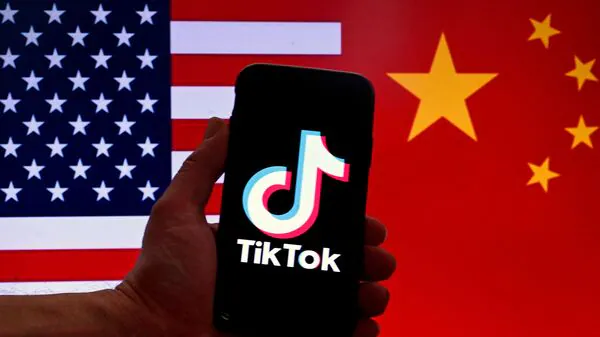## The Battle Over TikTok: A Deep Dive into the Geopolitical Tensions
In recent months, TikTok, the widely used video-sharing platform, has found itself in the midst of a spiraling geopolitical conflict that involves two of the world’s greatest powers: the United States and China. This intense scrutiny underlines broader concerns surrounding cybersecurity, content control, and international digital policy.
### Understanding the Geopolitical Tangle
TikTok, known for its vibrant content and massive user base, operates under ByteDance, a privately held company headquartered in Beijing. The app’s rapid growth and widespread popularity have been shadowed by increasing concerns from various governments about potential data privacy issues and the influence exerted by the Chinese government.
The core of the issue lies in the fear that the Chinese government could leverage legal and regulatory powers to access user data or disseminate propaganda and misinformation. This anxiety is compounded by broader tensions between the U.S. and China, encompassing trade disputes, technological rivalry, and military unease.
### Washington’s Stance on TikTok
The U.S. government’s concerns have not just been theoretical but have led to significant executive and legislative actions aiming to mitigate potential risks posed by TikTok’s operation within its borders. The debates revolve around national security concerns, with policymakers fearing that American users’ data might end up in the hands of Chinese authorities.
In light of these concerns, there have been ongoing discussions about regulation or even a total ban of the platform, mirroring actions taken by other countries wary of similar security risks. The U.S. administration’s approach reflects an increasingly stringent stance on technology platforms that are under foreign ownership, particularly those from geopolitical rivals.
### TikTok’s Response and Operational Adjustments
In response to these pressures, TikTok has made several strategic moves aimed at alleviating government fears and public skepticism. One significant step has been attempts to shift its data management and storage practices. By localizing data storage in the United States and beefing up data protection mechanisms, TikTok hopes to distance itself from accusations of being a tool for Chinese surveillance.
Moreover, TikTok has undertaken extensive public relations campaigns to highlight its commitment to user privacy and data security. The company emphasizes its function as an independent entity that operates transparently and in compliance with international data protection regulations.
### The Global Implications
The situation surrounding TikTok is not just a bilateral issue between the U.S. and China but a global concern that touches on the sovereignty of data, the freedom of the internet, and the future of international trade in the digital era. Countries around the globe are watching closely, as the decisions made by major powers like the U.S. could set precedents for how apps and technology companies are regulated and controlled worldwide.
### Looking Ahead: The Future of TikTok and Digital Geopolitics
As we move forward, the landscape of digital geopolitics continues to evolve. The TikTok saga is a clear indicator of how technology is increasingly intersecting with national security concerns. For TikTok and other similar platforms, the challenge will be to navigate these complex waters by innovating in ways that respect user privacy while appeasing governmental security demands.
Understanding this geopolitical tussle provides a fascinating lens through which to view the emerging dynamics of power in a digitized global environment. As stakeholders from across the spectrum — governments, technology companies, and users — negotiate their interests, the outcomes will undoubtedly shape the digital policies of the future.










